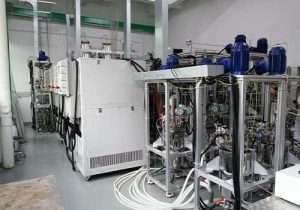water chiller cooler
Water Chiller Cooler: A Complete Guide
Water chiller coolers are essential systems in many industries, providing precise temperature control for processes, equipment, and environments. They are versatile, efficient, and reliable, making them a popular choice for cooling applications. This article explores the fundamentals of water chiller coolers, their types, working mechanisms, and how to choose the right one for your specific requirements.

- What is a Water Chiller Cooler?
A water chiller cooler is a device that cools water by removing heat through a refrigeration cycle. The chilled water is then circulated through a system to absorb heat from a process or environment, maintaining the desired temperature. Water chiller coolers are commonly used in HVAC systems, industrial processes, and specialized applications like medical imaging or food preservation. - How Does a Water Chiller Cooler Work?
The basic working principle of a water chiller cooler involves the following steps:
Evaporation: The refrigerant absorbs heat from the water in the evaporator, causing the refrigerant to evaporate.
Compression: The refrigerant vapor is compressed, increasing its temperature and pressure.
Condensation: The hot refrigerant vapor releases heat to the external medium (air or water) in the condenser, turning it back into a liquid.
Expansion: The high-pressure liquid refrigerant passes through an expansion valve, reducing its pressure and temperature before returning to the evaporator to repeat the cycle.
- Types of Water Chiller Coolers
Water chiller coolers are categorized based on their heat rejection method:
Air-Cooled Chiller Coolers
Use ambient air to dissipate heat from the refrigerant.

Self-contained units with no need for external water sources.
Ideal for small to medium-sized applications.
Advantages: Easy installation, lower maintenance, and space efficiency.
Disadvantages: Lower efficiency in high ambient temperatures and higher noise levels.
Water-Cooled Chiller Coolers
Use water to remove heat from the refrigerant, typically through a cooling tower.
More efficient than air-cooled chillers, especially in large-scale applications.
Advantages: Higher efficiency, quieter operation, and scalability.
Disadvantages: Complex installation, higher maintenance, and dependency on water availability.
- Applications of Water Chiller Coolers
Water chiller coolers are used in a wide range of industries and applications, including:
HVAC Systems: Cooling buildings and maintaining comfortable indoor temperatures.
Industrial Processes: Cooling machinery, equipment, and manufacturing processes.
Medical Equipment: Maintaining precise temperatures for MRI machines, laser systems, and laboratory equipment.
Food and Beverage Industry: Cooling during production, storage, and transportation.
Plastics Industry: Cooling molds and extruders in plastic manufacturing.
- Key Factors to Consider When Choosing a Water Chiller Cooler
Cooling Capacity: Determine the cooling load required for your application.
Energy Efficiency: Evaluate the chiller’s energy consumption and efficiency ratings.
Environmental Conditions: Consider ambient temperature, humidity, and water availability.

Space Constraints: Assess the available space for installation and maintenance.
Budget: Factor in initial costs, operational expenses, and maintenance requirements.
Noise Levels: Consider the noise generated by the chiller, especially in residential or office settings.
- Maintenance and Troubleshooting
Regular maintenance is essential to ensure the optimal performance and longevity of a water chiller cooler. Key maintenance tasks include:
Cleaning condenser and evaporator coils.
Checking refrigerant levels and pressure.
Inspecting and replacing filters.
Lubricating moving parts.
Monitoring system performance and addressing any issues promptly.
Common issues with water chiller coolers include refrigerant leaks, compressor failures, and reduced cooling efficiency. Regular inspections and timely repairs can prevent these problems and extend the system’s lifespan.
- Conclusion
Water chiller coolers are indispensable in various industries, providing reliable and efficient cooling solutions. Whether you need an air-cooled or water-cooled chiller cooler depends on your specific requirements, including cooling capacity, environmental conditions, and budget. By understanding the working principles, types, and applications of water chiller coolers, you can make an informed decision and select the right system to meet your needs. Regular maintenance and proper operation will ensure optimal performance and longevity, making your investment worthwhile.
Related recommendations
external chiller
225External Chiller: A Comprehensive OverviewIn the realm of thermal management, external chillers play a pivotal role in maintaining optimal temperatures for a wide range of applications. Unlike in...
View detailsindustrial process water chillers
454Industrial Process Water Chillers: A Comprehensive Overview Industrial process water chillers are critical components in a wide array of industrial applications, offering precise temperature co...
View detailsHow to Deal with the High Temperature Alarm of the Chiller?
1284How to Deal with the High Temperature Alarm of the Chiller? The high temperature alarm of the chiller will cause the device to trigger the protection switch to be disconnected and cannot cont...
View detailsWhat should be paid attention to during the debugging operation of air cooled water chillers?
1160What should be paid attention to during the debugging operation of air cooled water chillers? 1. Pressure and leakage test: Close the valves in the air-cooled chiller unit that a...
View details
 LNEYA Chiller
LNEYA Chiller







HelloPlease log in